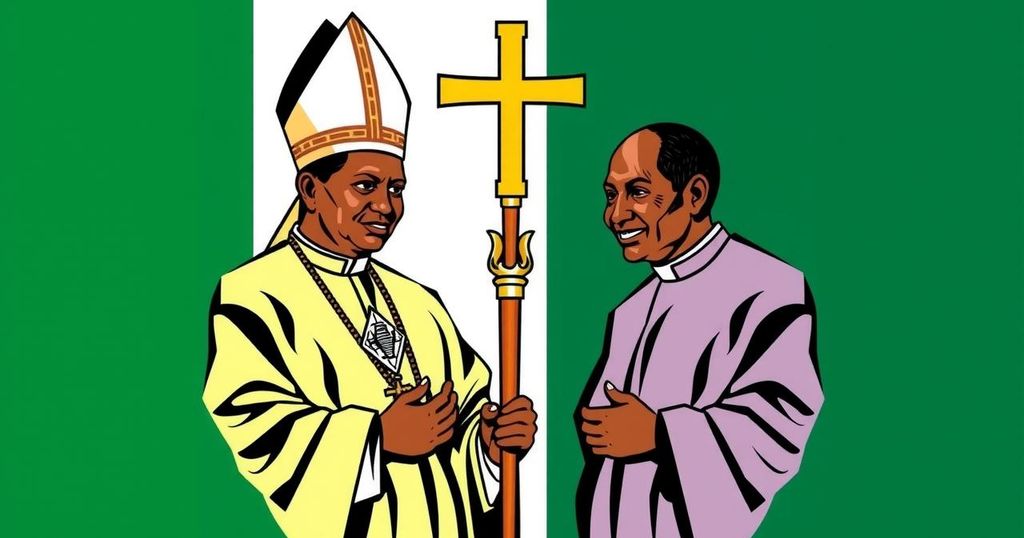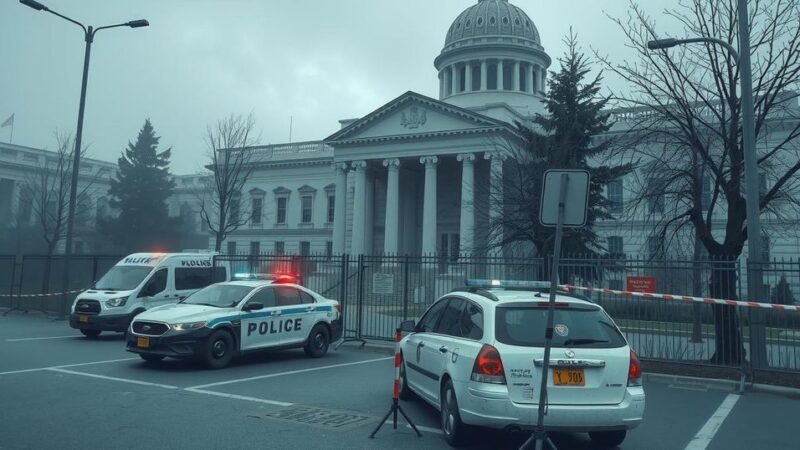As Ghana approaches its presidential elections, Catholic bishops urge voters to embody Gospel values in their choices, emphasizing peace and the welfare of the vulnerable. They call for responsible engagement amidst rising tensions and potential post-election violence, while also encouraging informed participation in the electoral process.
With just one week remaining until Ghana’s presidential election scheduled for December 7, the Catholic bishops of Ghana have issued a pastoral letter urging Catholics to engage in the electoral process guided by Gospel values. Amid vibrant campaign activities in Accra, the bishops have emphasized the importance of supporting candidates who prioritize the welfare of all citizens, particularly the most vulnerable groups. In their Advent message, they reminded voters to resist divisive rhetoric and empty promises that could detract from a peaceful electoral process.
The bishops’ letter, which was released on November 30, highlights that the upcoming elections are crucial, as they will determine the next president and 276 members of parliament. The episcopal leadership, led by Bishop Matthew Kwasi Gyamfi, underscores the necessity of maintaining peace and unity, reminding citizens that the essence of Christ’s message is reconciliation. As the electoral tensions rise with the imminent voting day, the bishops have called upon the electorate to place national interests above personal gains.
The Ghanaian political scene is poised for significant change, with thirteen candidates vying for the presidency, including Vice President Mahamudu Bawumia and former President John Dramani Mahama. Notably, the bishops highlighted concerns regarding potential post-election violence, recalling incidents from the previous election cycle. Ghanaians remain anxious, desiring a peaceful transition of power underpinned by civic responsibility and communal harmony.
In an effort to foster informed participation, the Accra Diocese has taken steps to educate the faithful about the voting process. By inviting representatives from the Electoral Commission to clarify procedures for ensuring valid ballots, they aim to encourage a high voter turnout.
In sum, as Ghana approaches its election day, the Catholic bishops play a pivotal role in advocating for a peaceful, responsible, and values-based electoral engagement among the populace, urging citizens to actively seek the common good through their voting choices. They call upon all Ghanaians to embody the spirit of peace, dialogue, and respect amidst potential political discord.
The pastoral letter released by the Ghana Catholic Bishops’ Conference comes at a critical time, as it coincides with significant political campaigning for the presidential elections in Ghana. Historically, elections in the country have the potential for tension and violence, particularly in light of past experiences where disputes have led to civil unrest. Therefore, the bishops’ intervention serves as a moral compass intended to remind voters of the importance of Gospel principles in their political decisions, emphasizing national unity and the welfare of the marginalized.
In conclusion, the call by Ghana’s Catholic bishops for voters to embrace Gospel values is both timely and necessary given the looming presidential election. It serves as a reminder to prioritize peace, dialogue, and the common good during the electoral process. As the nation prepares to cast its votes, the bishops’ appeal for responsible engagement and national unity may prove instrumental in curbing potential conflicts that often accompany elections.
Original Source: international.la-croix.com







